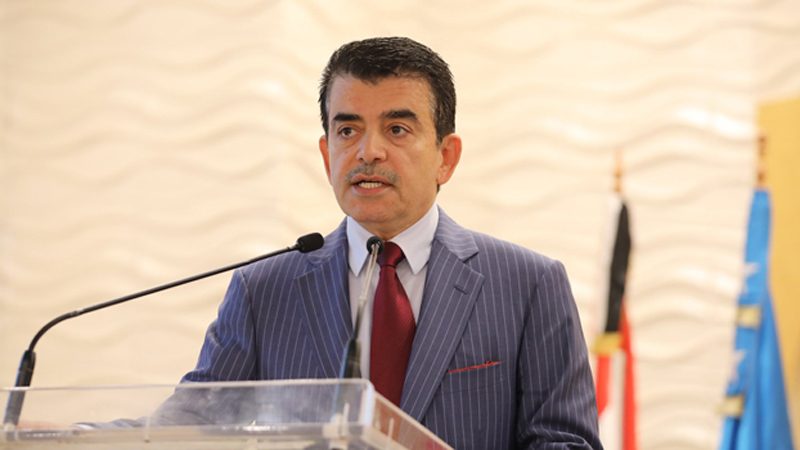
ISESCO: Complementarity between tourism and culture sectors is crucial to fighting poverty

16 October 2019
Dr. AlMalik extends invitation to hold the 2020 Joint Meeting of Arab Ministers of Tourism and Culture at ISESCO headquarters.
Dr. Salim M. AlMalik, Director General of the Islamic Educational, Scientific and Cultural Organization (ISESCO), presented ISESCO’s approach to complementarity between the sectors of tourism and culture, which he said reflects the Organization’s awareness of the positive impact of this complementarity on the economy, the social fabric, the fight against poverty, creation of job opportunities for young people, development of local communities’ economies, and promotion of sustainable development efforts, especially with regard to investing in cultural heritage and employing countries’ rich and diverse historic and cultural capacities.
“This approach is part of ISESCO’s new vision to addressing the issues falling within its areas of competence, namely education, science, and culture”, the Director General stated in an address he gave at the opening session of the Second Joint Meeting of Arab Ministers of Tourism and Culture, which kicked off today, in Tunis. He added that ISESCO’s new approach to safeguarding cultural heritage in Member States and rehabilitating its components to become a destination for cultural tourism through upgrading the work, tasks and roles of the Islamic World Heritage Committee (IWHC), particularly regarding inscribing more historic sites and elements of intangible, natural and industrial heritage. Dr. AlMalik also talked about other measures, which included setting up the Islamic World Heritage List and networking it with the Word Heritage List, and creating the Heritage Projects Support Fund for the Arab and Islamic world, and the Heritage Observatory to monitor the situation of cultural heritage and explore ways to invest therein to develop cultural and environmental tourism.
Moreover, the Director General stressed the need to follow through with the implementation of the new vision through ISESCO’s action plans and cultural tourism programmes for the benefit of Member States. “This can be achieved through building partnerships among Member States in the field of cultural tourism, adopting tourism as a vehicle of publicizing Arab-Islamic heritage and a backbone for safeguarding, investing in, developing and highlighting the developmental potentials of such heritage”, the Director General underscored.
In the same vein, Dr. AlMalik underlined that ISESCO’s new line of action did not neglect building the capacities of workers in the fields of culture and tourism, stating that efforts were geared towards promoting cooperation programmes on this matter with specialized regional and international organizations in order to build outstanding capacities and raise their awareness of the cultural facilities, historic sites, archeological landmarks, environmental pathways as sustainable destinations for cultural tourism.
At the close of his address, ISESCO Director General extended his invitation to hold the 2020 Joint Meeting of Arab Ministers of Tourism and Culture at ISESCO headquarters. He also called on the ministers taking part in the meeting to support ISESCO’s effort and establish cooperation and partnership channels with the Organization to help it achieve its set goals.





